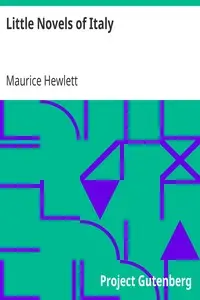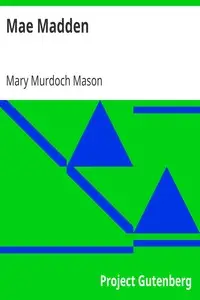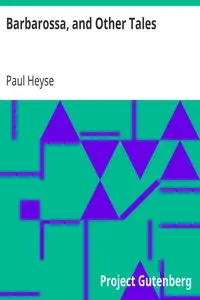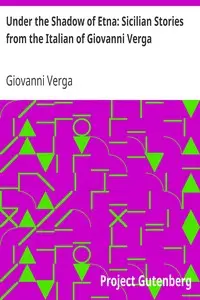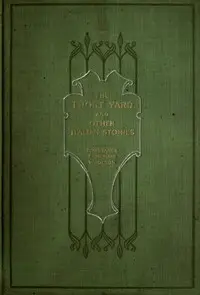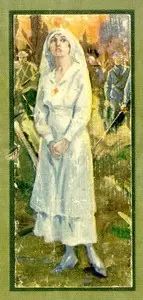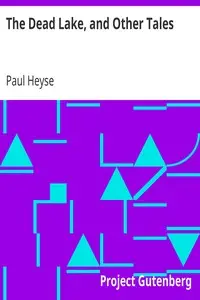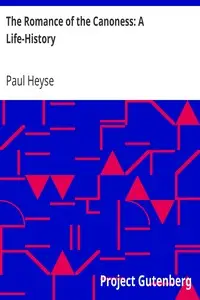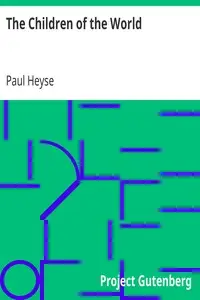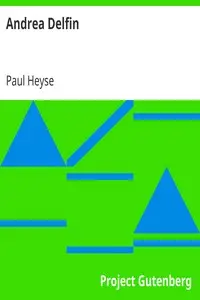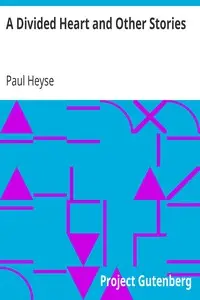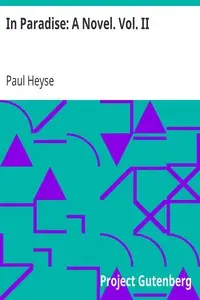"L'Arrabiata and Other Tales" by Paul Heyse is a compilation of short stories that explore human relationships against the backdrop of 19th-century Italy. The title story, "L'Arrabiata," introduces readers to Laurella, a spirited young woman from Sorrento, and her encounters with a priest and a boatman named Antonio. The narratives are woven with themes of love, hardship, and social interactions, all set within the vibrant Italian coast. "L'Arrabiata" begins amidst the lively atmosphere of Sorrento's marina where the strong-willed Laurella, due to her unique character, attracts the interest of the priest and Antonio. While journeying to Capri with the priest, she shares a touching account of her family life, revealing the difficult relationship between her parents, which affected her views on love. This sets a resilient tone as Laurella struggles to maintain her independence and resists romantic relationships, preparing us for explorations of her character and conflicts.
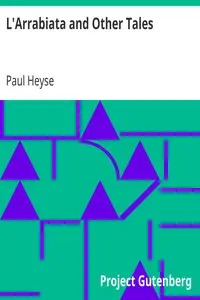
L'Arrabiata and Other Tales
By Paul Heyse
A fiery young woman navigates love and independence against the scenic yet challenging backdrop of coastal Italy.
Summary
About the AuthorPaul Johann Ludwig von Heyse was a German writer and translator. A member of two important literary societies, the Tunnel über der Spree in Berlin and Die Krokodile in Munich, he wrote novels, poetry, 177 short stories, and about sixty dramas. The sum of Heyse's many and varied productions made him a dominant figure among German men of letters. He was awarded the 1910 Nobel Prize in Literature "as a tribute to the consummate artistry, permeated with idealism, which he has demonstrated during his long productive career as a lyric poet, dramatist, novelist and writer of world-renowned short stories." Wirsen, one of the Nobel judges, said that "Germany has not had a greater literary genius since Goethe." Heyse is the fifth oldest laureate in literature, after Alice Munro, Jaroslav Seifert, Theodor Mommsen and Doris Lessing.
Paul Johann Ludwig von Heyse was a German writer and translator. A member of two important literary societies, the Tunnel über der Spree in Berlin and Die Krokodile in Munich, he wrote novels, poetry, 177 short stories, and about sixty dramas. The sum of Heyse's many and varied productions made him a dominant figure among German men of letters. He was awarded the 1910 Nobel Prize in Literature "as a tribute to the consummate artistry, permeated with idealism, which he has demonstrated during his long productive career as a lyric poet, dramatist, novelist and writer of world-renowned short stories." Wirsen, one of the Nobel judges, said that "Germany has not had a greater literary genius since Goethe." Heyse is the fifth oldest laureate in literature, after Alice Munro, Jaroslav Seifert, Theodor Mommsen and Doris Lessing.


